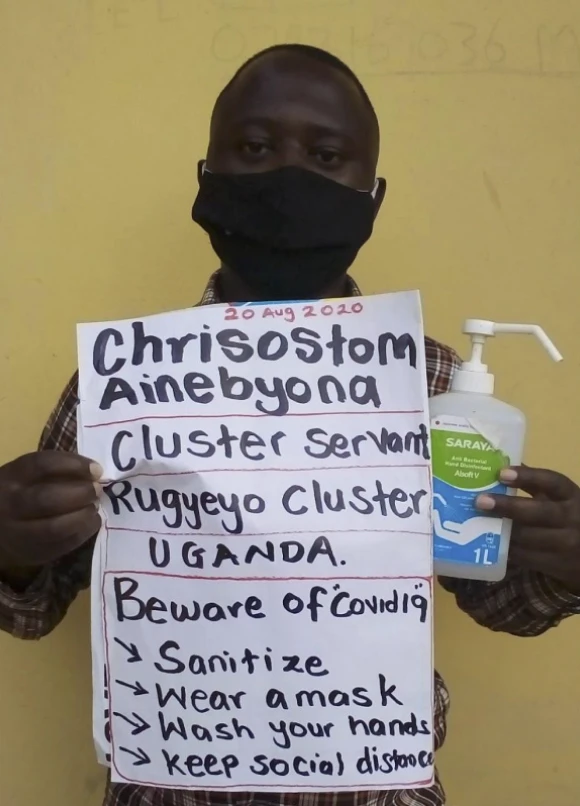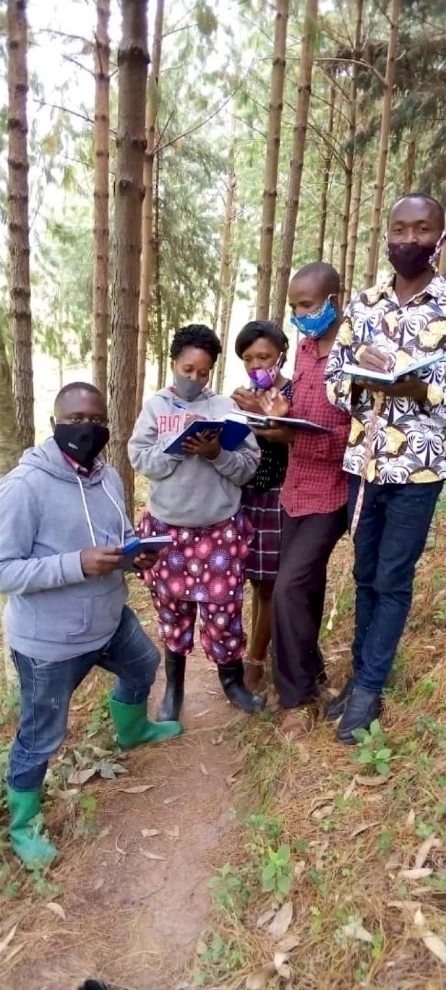Chrisostom Ainebyona
In reflecting on his history with TIST, Chris sees himself growing as a leader. Part of this process has meant investing in himself by participating alongside farmers when he is teaching them. “How can I tell farmers to plant trees when they have not even seen me planting a single tree?”

For many, TIST is a network of familial connections. When Chrisostom Ainebyona entered the TIST Uganda program in 2005, he joined his already-involved father, who gave Chris land to plant 100 trees. Involvement with TIST had such an immediate impact on Chris that he decided to continue training people in his Cluster on his father’s behalf, to maintain both the Program and its expansion in their area.
The skills Chris acquired from his father have shown him the value of training and leadership firsthand. Continuous learning is an innate component of all Chris does in Kanungu District, Uganda. A large portion of his knowledge comes from listening to and consulting with more experienced individuals. Chris conducts a self-evaluation every other month, and welcomes feedback at all stages from the farmers, quantifiers, and anyone with whom he might be working. Over the course of his involvement he has been chosen to work as a quantifier, a facilitator that trains both farmers and quantifiers in East Africa, a member of the expansion team identifying areas for growth in Southwestern Uganda, and a combination field and desk auditor overseeing the quality of work. Thanks to Chris, TIST is now linked with communities and organizations (such as churches) that help farmers get paid and sustain TIST Uganda.
In reflecting on his history with TIST, Chris sees himself growing as a leader. Part of this process has meant investing in himself by participating alongside farmers when he is teaching them. “How can I tell farmers to plant trees when they have not even seen me planting a single tree?” To Chris, when people see you do the very task you are asking them to do, you are transparent. He incorporates the TIST Value of transparency into the study-center he started in his own home, where he continues to train farmers.

A significant amount of his time has been spent on the expansion team. The expansion team facilitates trainings for farmers and communicates the eligibility requirements for joining TIST. By mobilizing countless groups and farmers, Chris has been able to train farmers to help him recruit further members. This sustainable strategy for program growth is strengthened when farmers are the ones recruiting farmers.
Chris is one of many individuals whose collective efforts translate positively to the community. Through access to trainings, farmers develop new leaders in monthly Cluster Meetings by engaging all members with Rotational Leadership. Conservation Farming is a common training topic; a TIST Best Practice that helps small plots of land produce higher yields through the use of organic inputs and water capture. This practice helps farmers navigate the challenges of having limited land for tree planting, and areas that are prone to landslides. When farmers are able to plant trees, they create additional income that helps them buy more land, pay school fees for their children, and improve their homes.
When COVID arrived, it limited TIST Uganda’s expansion and training endeavors. In the past, Chris would attend farmer and quantifier trainings in Kenya, and partake in place-based recruitment ventures. Now that he cannot participate in Seminars and in-person recruiting alongside other farmers, Chris engages in virtual expansion efforts via WhatsApp and Zoom. His work makes program growth possible in spite of the limitations posed by COVID. The leadership Chris demonstrates reinforces the sustainable efforts to create spaces for farmers to thrive.
